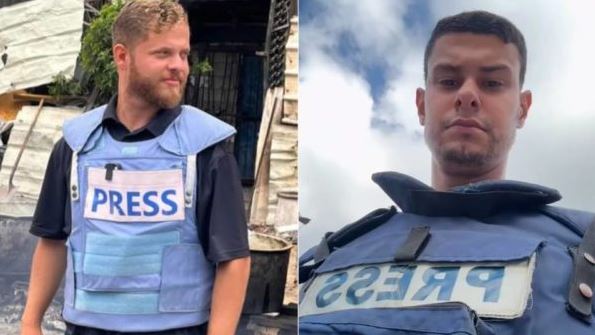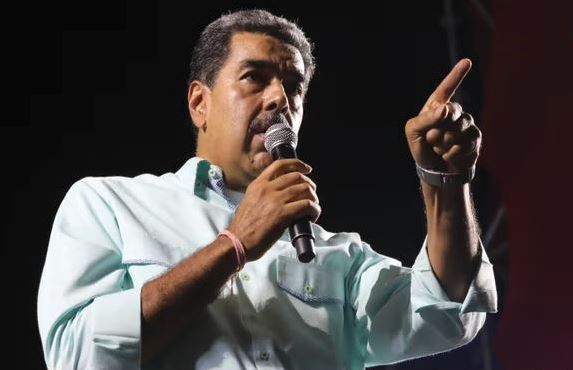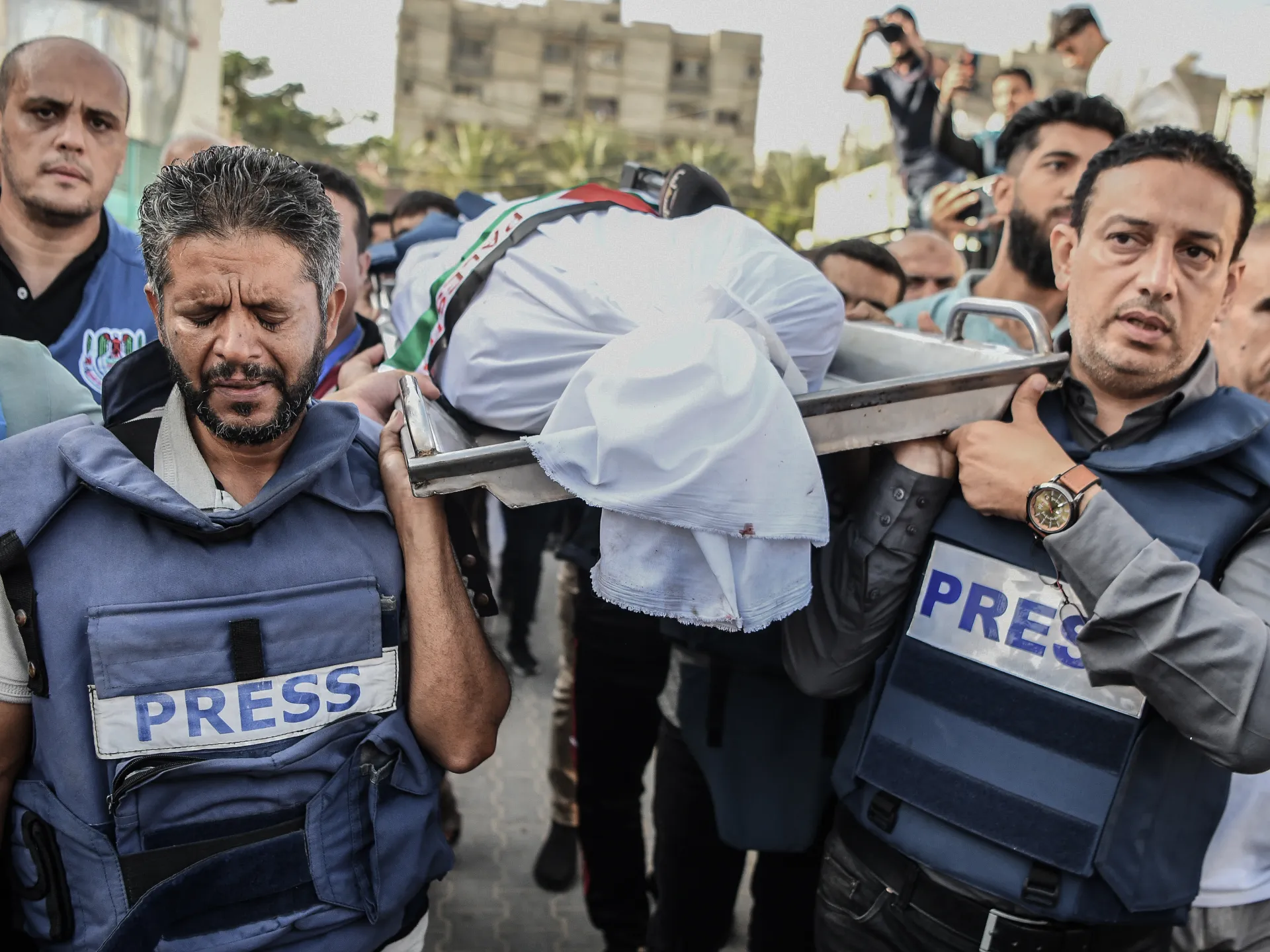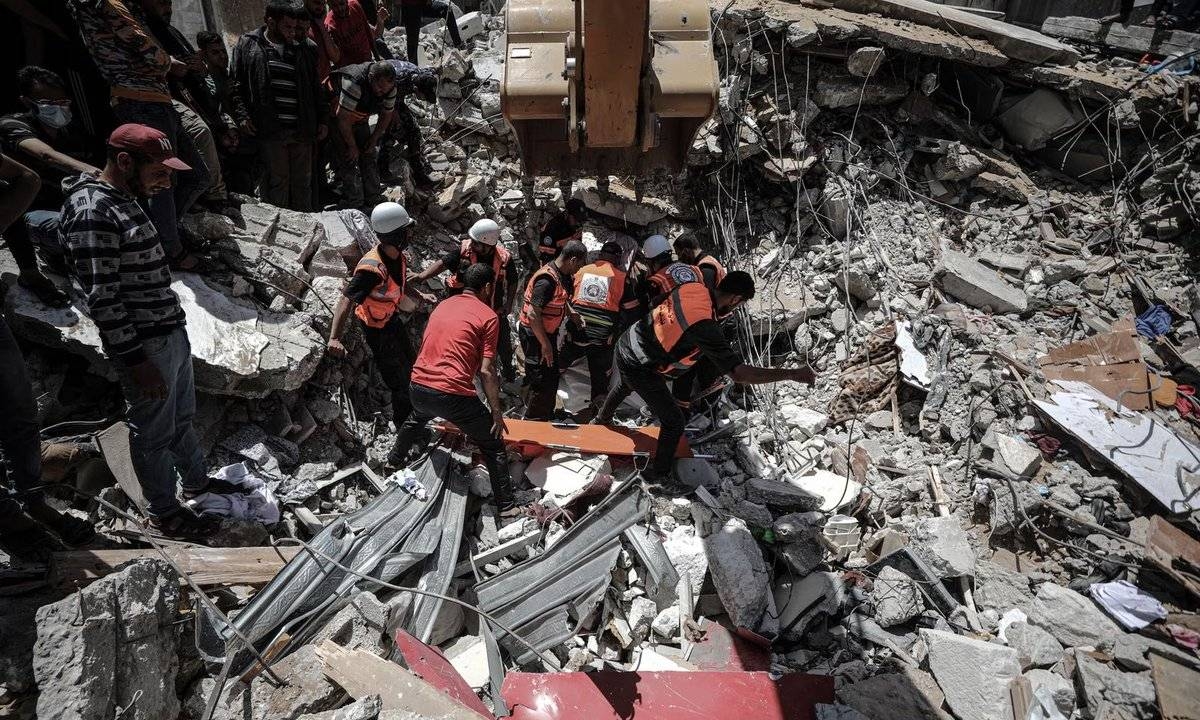
A Voice Silenced: Gaza Mourns Journalist and Teacher Omar Al-Balaawi
October 11, 2024
Venezuela Uses Passport Revocation to Silence Critics After Disputed Election
October 12, 2024October 11, 2024 – Palestine –
An in-depth investigation by The Intercept, published on October 11, 2024, has revealed disturbing evidence suggesting that Israeli forces have deliberately targeted journalists in Gaza since the start of the war in October 2023. Drawing from eyewitness testimonies, verified videos, and open-source intelligence, the report alleges that the killings of several Palestinian journalists were not accidental but the result of direct and intentional strikes.
The report highlights that local journalists, many of whom were wearing marked “PRESS” vests and working in areas known to be occupied by media crews, were killed in drone and airstrikes. In several cases, no combatants or military targets were nearby, undermining Israel’s typical justifications for collateral damage. Notably, The Intercept details the killing of journalists who were sheltering in tents outside hospitals or reporting from rooftops—locations known to Israeli intelligence and previously declared as civilian press spaces.
Since foreign journalists have been largely barred from Gaza during the conflict, local reporters have been the primary—and often only—sources documenting Israeli military actions, civilian casualties, and the unfolding humanitarian catastrophe. According to the Committee to Protect Journalists, more than 230 journalists have been killed since October 2023, making Gaza the deadliest conflict for reporters ever recorded. The Intercept investigation reinforces fears that some of these deaths may have been premeditated, aimed at suppressing documentation of the war’s realities.
The report also underscores the systematic destruction of media infrastructure. Press offices, radio stations, and even press tents outside hospitals have been targeted. Combined with communication blackouts and power outages, the killing of journalists contributes to an enforced information vacuum.
Human rights organizations, including Reporters Without Borders and Amnesty International, have called for independent investigations and raised the possibility of war crimes. If proven, the deliberate targeting of journalists would violate international humanitarian law and press protections under the Geneva Conventions.
The Intercept’s findings are a chilling reminder that in Gaza, journalists are not just collateral—they are on the frontlines of truth, and increasingly, they are being silenced. Without them, the world loses its window into one of the most consequential conflicts of our time.
Reference –




